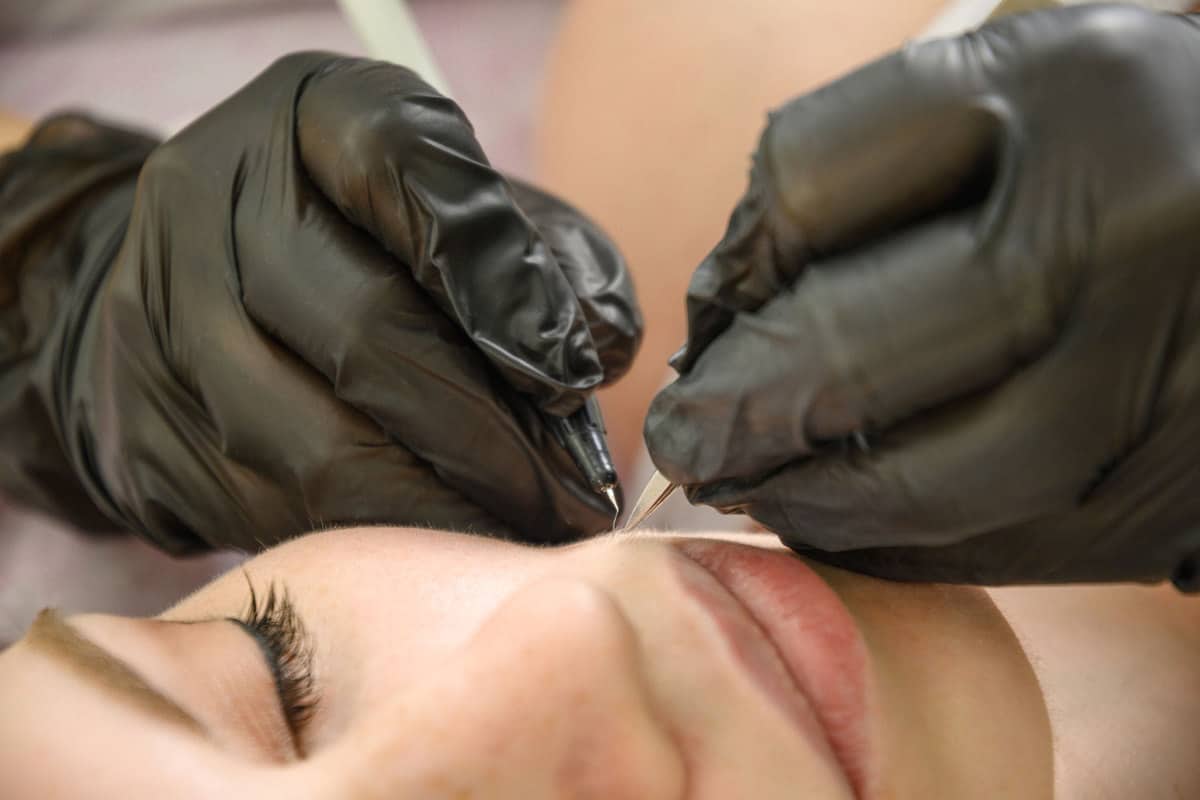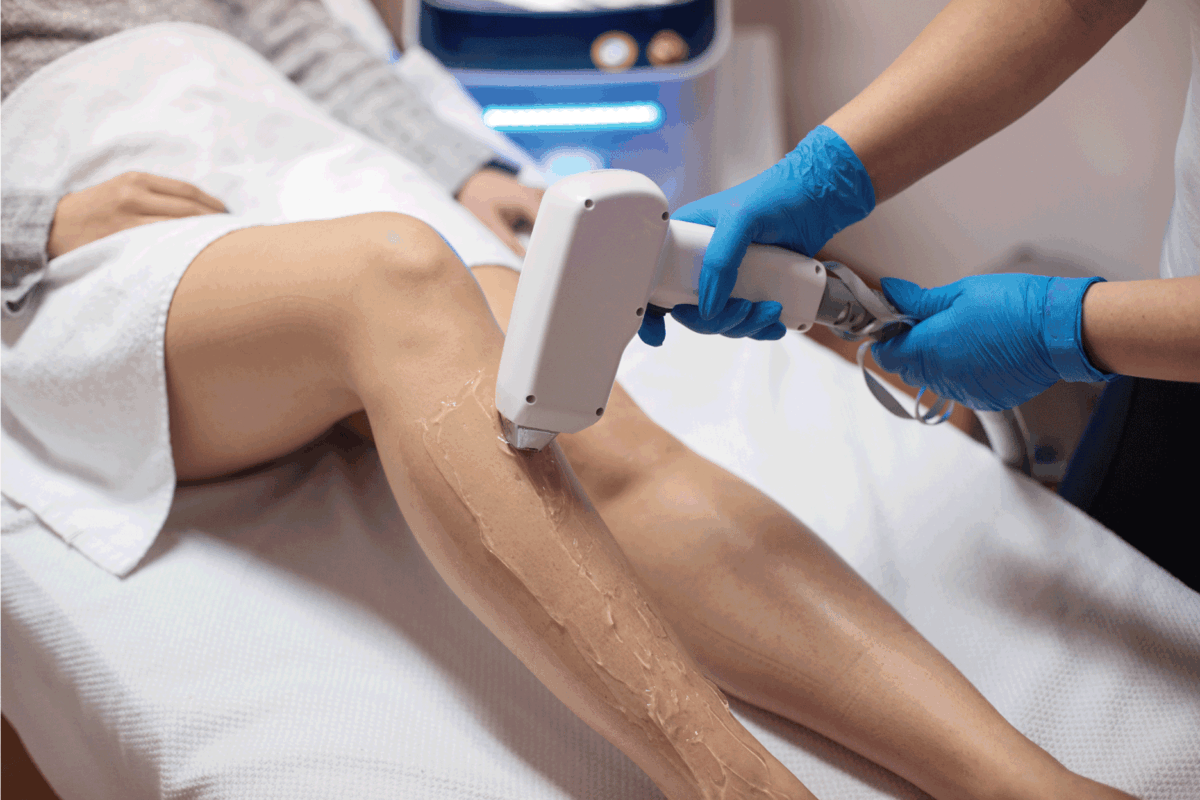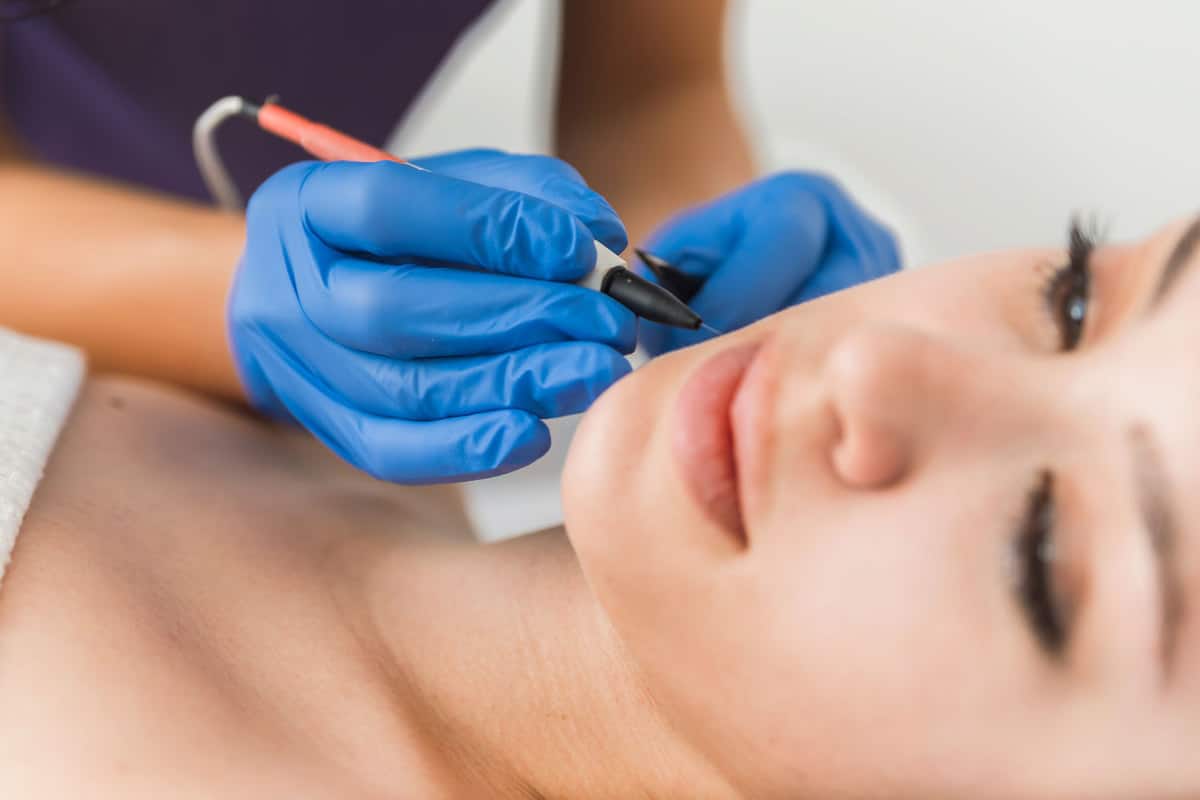Tipping is a very customary thing to do as an extra thank you for the many services provided to us on a daily basis. Some services are known for tipping, but electrolysis not so much. We've looked into whether this traditional add-on is necessary for electrolysis for you, so you won't be worried about what to do after your next session!
Overall the general consensus is that no, you do not need to tip for electrolysis. In some situations, you may be able to tip, however, if you would like to. It may depend on who is performing your electrolysis, where they work, and your personal feelings about tipping, and the quality of service you received.
We know that this answer isn't as black and white as you may have hoped for. Tipping, in general, is not a required service, so it's hard to give an exact answer. Everybody has their own personal rules on who they tip and how much. Stick with us because we're going to take a more in-depth look at all the factors that may sway your decision to reach into your wallet for that something extra, even if you don't really have to!

This article may include affiliate links and elements that were carefully created by our team using advanced ai to help you envision the best style advice.
Why you shouldn't usually tip for electrolysis
If you don't know a lot about electrolysis, it's hard to know where it lands as an industry. Who can perform electrolysis? Is it part of the medical field or the beauty industry? Is it a necessary procedure or a cosmetic one? Let's take a look at some defining factors so you can see the answer to these questions.
Who you do and do not tip
Tipping is a gray area, but there are some hard lines. It's pretty much a given that you should tip when you're dining out or getting your hair done. It's also pretty normal that you don't tip your dental hygienist or your chiropractor. So if you see your electrolysis as a medical procedure, you will probably align it with the latter examples.
What is a person who does electrolysis called?

The professional term for this person is an electrologist. They are trained and licensed to perform the procedure of electrolysis. It is generally their sole specialty that they practice and have gone to school and undergone training to be able to perform effectively and safely.
Do dermatologists do electrolysis?
Licensed dermatologists can do electrolysis. This does not mean, however, that all of them offer this service. However, as skin professionals, they do have the legal ability to do electrolysis as long as they have the training.
Is it medical, or just cosmetic?
It's a healthy mix of both, honestly. Electrolysis is a medical procedure, even if it is a cosmetic one. There are risks and factors that medical training is needed to address safely. Oftentimes, it is seen as more of a beauty industry because the hair removal in general.
It also comes down to why you are getting electrolysis done. Many individuals have hormone imbalances and other disorders that make hair removal closer to a need than a want. There are also those who simply don't want to have to shave their legs or bikini lines again. So it's a combination of medical and beauty.
The overall expense
Electrolysis is expensive. More so than getting your hair done and less so than a doctor's visit. You will also need many sessions of it before you get that permanently smooth skin that you're after. Does your electrologist get paid well enough already without a tip?

How much does electrolysis typically cost?
It depends on several factors to determine the exact cost of electrolysis for you. Whether you live in a larger or smaller city can influence the price. The experience of who is performing the procedure can also determine how much you may be paying.
The cost of electrolysis is usually determined by the length of each session. You may be paying anywhere from $30 to $100 per session. It will be less expensive for shorter sessions, however. A 15-minute session could be $30, and a one-hour session might be $80 dollars.
Does insurance cover electrolysis?
Insurance does not cover electrolysis. Providers tend to exclude electrolysis from their plans, so it is pretty much impossible to get them to cover it, even if you view it as medically necessary. They consider it to be a purely cosmetic procedure in nature.
How many sessions are needed for electrolysis?
When trying to figure out how much electrolysis will end up costing you overall, you have to know how much of it you will need. Unfortunately, there is no way to get a specific number of sessions that you will need. The best course of action is to talk with your electrologist and try to get a range for how many sessions you will need.
It can take six to 18 months to fully finish treating an area. It depends on too many factors to get an exact amount of sessions, such as the area on your body, how thick the hair is, and how much hair there is. These are all things that your electrolysis provider has to take into account. As a general rule, they don't know how many sessions you will need until it gets closer towards the end of your treatments for that area.
Cost for electrolysis vs. laser hair removal

When it comes to looking at the costs of electrolysis versus the cost of laser hair removal, they are pretty comparable. Laser hair removal costs can also fluctuate depending on many of the same factors as electrolysis. Trying to figure out the overall cost of both also depends on factoring in how much laser you would need compared to electrolysis. Laser, like electrolysis, can differ in how many treatments you need, sometimes more and sometimes less.
There are a couple of deciding factors that help electrolysis pull ahead of laser hair removal. Electrolysis is permanent, and laser is not. Also, electrolysis gets rid of all hairs, while laser can not get rid of blonde, white, or light-colored hairs in general. So even if electrolysis is a little more expensive than that could be worth it for the added benefits.
Cost for electrolysis vs. shaving and waxing
All of these options rack up a good-sized bill over time. With shaving, you have to keep buying razors and creams to shave with. If you go the route of waxing, you either have to keep buying at-home kits or making visits to a professional waxer.
Electrolysis is the only one of these options that you will eventually stop needing! With shaving and waxing, you're going to have to budget for the necessary items to do those forever. Not to mention deal with the negative and often uncomfortable side-effects of them forever. Electrolysis is the only option where you can have an end in sight!
Ultimately it depends on the situation

Some places that offer electrolysis may have a tip jar out, but the majority of them will not. Your electrologist or dermatologist may even have obvious signs that say "Tipping Is Welcome" or "Please Do Not Tip." Unfortunately, you're just going to have to do what feels right to you in these moments. At the end of the day if you're not sure if they accept tips or not, but you want to give them one, you can always just ask!
Here are some great articles all about your skin for when that hair is gone!

![Scientist holding Cyanoacrylate glue, Is There An Eyelash Glue Without Cyanoacrylate? [A Guide to Finding Safe Alternatives] - 1600x900](https://stylecheer.com/wp-content/uploads/2023/09/shutterstock_2238414685-300x169.jpg)
![Applying lash glue onto fake eyelashes, Why Is My Lash Glue Not Sticking? [Common Reasons and Solutions] - 1600x900](https://stylecheer.com/wp-content/uploads/2023/09/shutterstock_1059533828-300x169.jpg)
![Pouring black lash glue onto a small mat, What Glue Do Lash Techs Use? [A Guide to Lash Extension Adhesives] - 1600x900](https://stylecheer.com/wp-content/uploads/2023/09/shutterstock_1541038103-300x169.jpg)